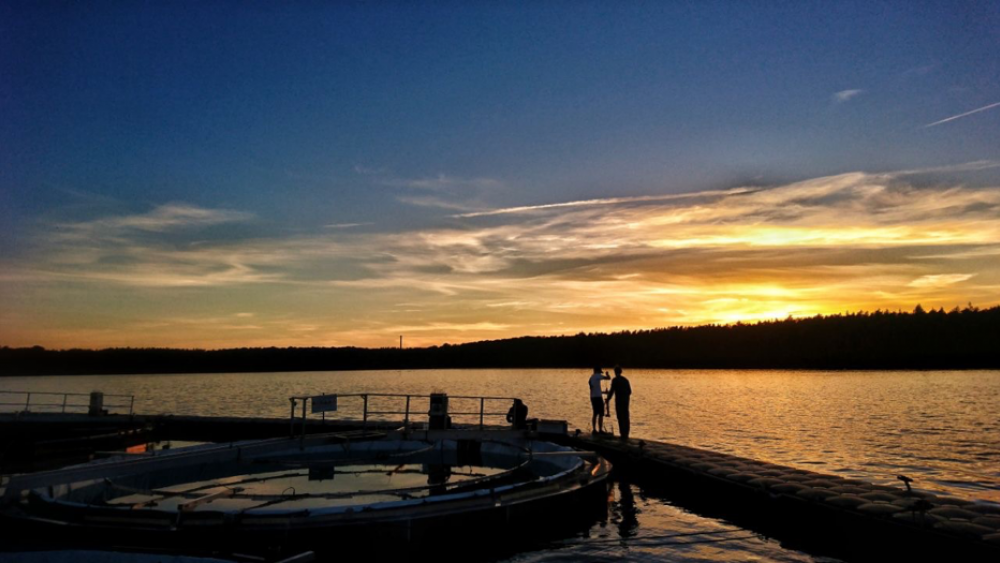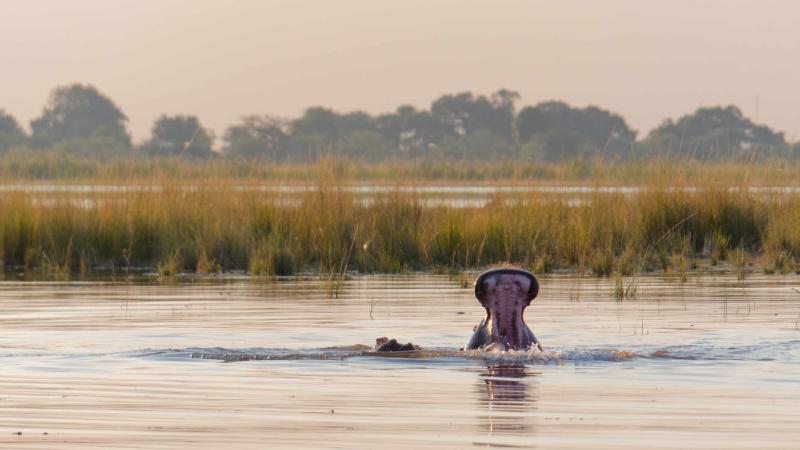
The research team collecting water samples in the morning hours at Lake Stechlin, to study oxic methane production in lake water. | Photo: Marco Günthel
The researchers investigated the formation of the greenhouse gas methane in Lake Stechlin, a deep clear water lake in north-eastern Germany with good water quality. They were able to show that considerable amounts of methane are formed in the oxygen-rich surface layer of the lake.
This result disproves a scientific paradigm that has existed to date, including the current assessments of the Intergovernmental Panel on Climate Change (IPCC). So far, experts have assumed that methane is produced naturally in inland waters mainly in oxygen-depleted environments such as lake sediments, wetlands and swamps. However the result of this new study, which is published in Nature Communications, has now challenged these previous assessments.
In their experiments, the researchers took water samples from Lake Stechlin. They found that a significant amount of methane was being produced there in the well-oxygenated surface layer, which is in direct contact with the air. It was also discovered that as the methane gas is produced at the surface in direct contact with air, the levels of emissions that travel directly into the atmosphere, without being oxidised to carbon dioxide beforehand, are also significant. Unfortunately, methane harms our climate more severely and faster than carbon dioxide.
"We assume that methane emissions are likely to increase with the lake size, and could account for over half of surface methane emission for lakes larger than one square kilometer," says Professor Hans-Peter Grossart from IGB.
Lead author of the study, Marco Günthel from Swansea University in Wales, adds: "Methane emission in lakes is based on a complex network of biochemical and physical processes, some of which are still poorly understood. I hope our study will stimulate more research on this topic as it is needed to fully understand the global methane cycle and to improve climate change predictions."





